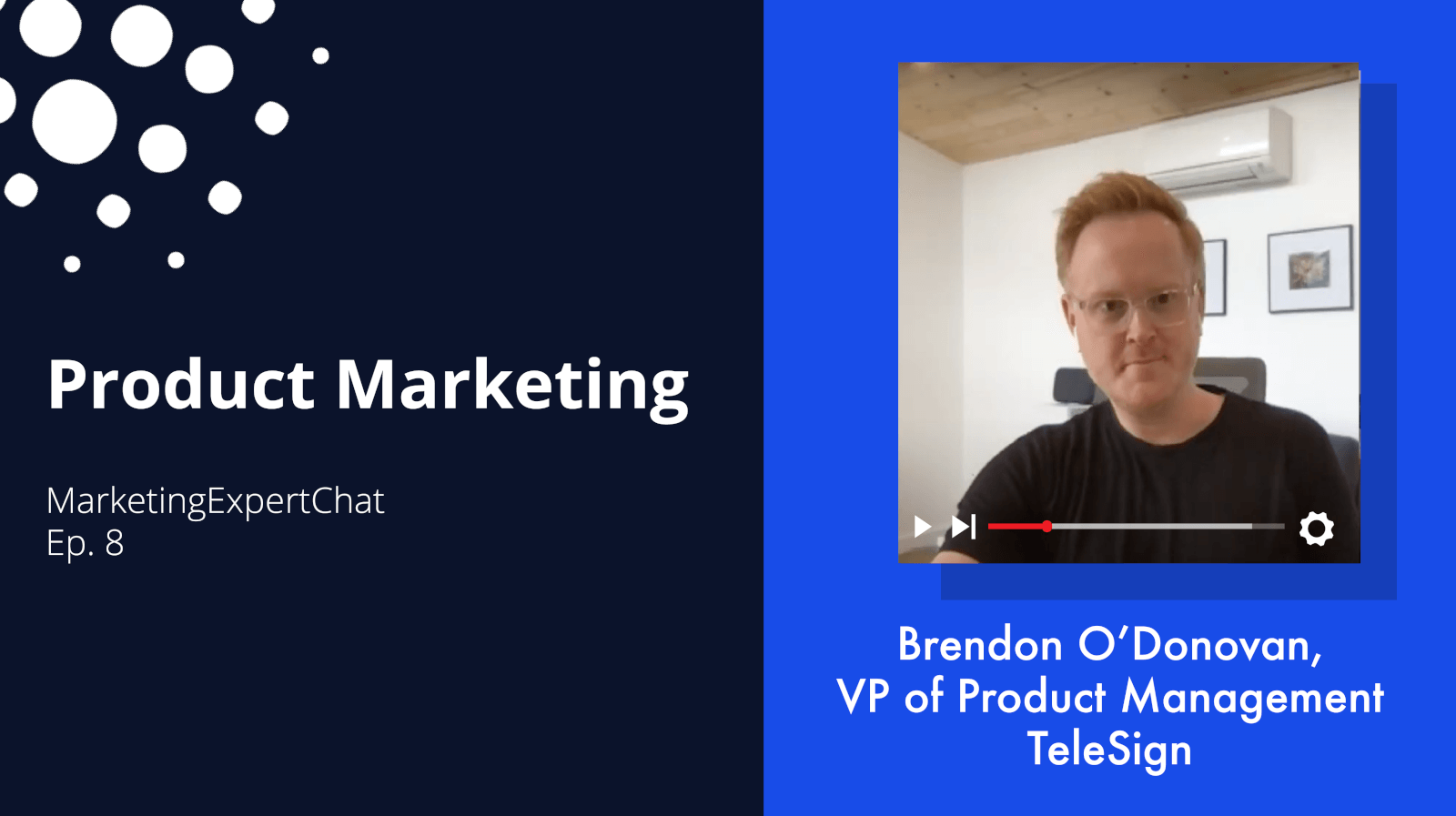I think we can all agree that starting a new job usually elicits a mixture of nerves and excitement.
Meeting your colleagues, learning the company’s objectives and goals, adjusting to new leadership and day-to-day activities… it can all be overwhelming (and exhilarating).
Now think about all that being amplified when switching from a marketing role at an enterprise to a start-up. It’s a whole new world. Meaning, the transition could likely be a challenge if you’re new to the start-up world.
In this episode of our Growth Marketing Chat, Place Technology’s Marketing Manager, Ben Sperry, joined us to share his personal experience leaving an enterprise to start a new role in growth marketing at a start-up company. He offers 3 key pieces of advice on how to successfully make such a transition, such as:
-
An approach to the interview process
-
How to adapt to a new environment
-
The importance of embracing new responsibilities and opportunities
Tune in to the video now to hear Ben’s valuable advice – he ends with a great reminder to all marketers, not just those at start-ups, that we all need to make sure we keep a healthy work-life balance!
Video Transcript:
CAROLINE: Hi, today I’m here with Ben Sperry. Ben is a demand generation specialist at Place Technology, and he used to be a Gartner until recently. Ben, thank you so much for being with me today.
BEN: Hi Caroline, thanks for having me.
CAROLINE: So today we’re gonna talk about transitioning from a very large company to the start-up world. And you just did this recently. And so, my question for you is how do you successfully transition from an enterprise environment to a start-up environment?
BEN: Yeah, it’s a great question. I’ll provide a little more context about my background just to give a little color to the answer that I’m gonna provide. When I was at my previous company, I was an individual contributor and I specialized in digital advertising. So paid search, paid social, et cetera. That’s really where I spent my entire day. That was really what I considered my area of expertise. So, when I joined up with Place Technology there were definitely elements of the job that were quite a bit different than what I was doing previously at Gartner. And when I think about advice for how to make a transition like this, I think about it really in three kind of linear parts.
So, starting with the interview process. When you’re at a really large company and you’re interviewing with a very small early-stage start-up and you’re talking through kind of what the job is going to entail and what your day to day will be I would focus a lot more on the kin of high-level, long-term objectives of the company as opposed to kind of the tactical what you’ll be doing day to day as far as your short-term goals are concerned. That may sound a little counter-intuitive, but the reason for that is I feel that where the company is going long-term and I’m thinking here about their strategy around funding, who their target audience is, you know, getting a feel for the product as well, being really important. That’s gonna really give you some insight as to no matter what changes day in and day out, what direction the company is heading in and what direction your role is heading in. And if that aligns with your long-term goals for your career then I think that represents a great opportunity.
And so, when I think about going from the interview part of it into you’ve started the job, it’s your day to day now I think at least at a lot of early-stage start-ups what you’re going to find is that your kind of short-term goals, what you’re working on day in day out, it’s going to change constantly. And you may find in a lot of cases that your area of expertise at that large company that you were at, or maybe you were really focused in on whether it’s paid social or email marketing or whatever it might’ve been… You may find that that’s a very small part of your day as a marketing team of one or a member of a small, but fast-growing marketing team at a start-up. Your day to day is going to be quite different than what you thought it was in a lot of cases and your priorities are gonna change very frequently. And I think there’s two kind of options for how you can approach that and handle that. You know, you can kind of fight the change a little bit and kind of try and focus more on where you feel like your area of expertise lies, even though that’s really kind of not aligning with what the goals for the company are becoming and kind of what the immediate needs are, or you can kind of come at it from a growth mindset point of view and really approach it optimistically and look at it as an opportunity to learn and to grow. And that’s what I would recommend. I think there’s a lot of opportunity for personal and professional growth when you’re working at a really kind of small, fast growing start-up if you’re willing to kind of embrace it and have that optimistic outlook on being willing to learn and get up to speed quickly.
So, the third piece of advice is, once you’ve kind of gone through those first few parts, I think it’s super important to remember to carve out time for yourself still and take care of yourself. And the reason I say this is because when you’re kind of embracing that growth mindset and that optimistic outlook on learning all of these new skills at a start-up that’s again growing really fast it can be really easy to fall into working nonstop on all of these new initiatives you’re working on, in addition to like learning new concepts that you then have to learn and implement right away. It would be really, really easy to work sunup to sundown every day of the week to ensure that you’re getting as much done as you possibly can. And if you go that route, you’re going to find that you’re still not accomplishing everything that you know is encompassed in your role. You could work nonstop and never accomplish it all. So, I think it’s important to carve out time for yourself and ensure that you kind of have those boundaries in place where you’re taking that time to recover because burnout is real and it’s something that you can easily fall into if you’re kind of embracing this start-up culture and you’re not taking that time to recharge and recoup.
CAROLINE: Yeah, and that’s extremely, extremely good advice. I’ve been in the start-up world myself and I can totally relate. And I think because you’re so, you know if you’re really excited about the company and your goals and you do want to accomplish everything but realizing that you won’t and it’s okay and it’s okay to take a step back. And it’s important for everyone to, for you to take a step back and just take this time for yourself and not feel guilty about it, I think is like this is the best piece of advice you can give anybody in the start-up world.
BEN: Yeah, absolutely. And I think there’s, especially in marketing roles, if you have a really time-sensitive and super high impact project, I think it’s totally fine to overextend and really go all in to accomplish that project. If it’s for a short period of time. I think that’s totally cool to like do a sprint specific to that project. I think the pitfall that you really want to avoid is then kind of having that become your new default where then everything becomes this extremely important project that’s super time-sensitive when maybe that’s not the case. But you wanna avoid… you wanna avoid taking that approach to every project that you take on, really be selective about when you do go above and beyond and kind of exceed those guardrails that you have in place for yourself.
CAROLINE: Right, Exactly. Well, that’s great advice. Thanks so much, Ben, for being here and sharing this with us.
BEN: Of course, thanks, Caroline.





